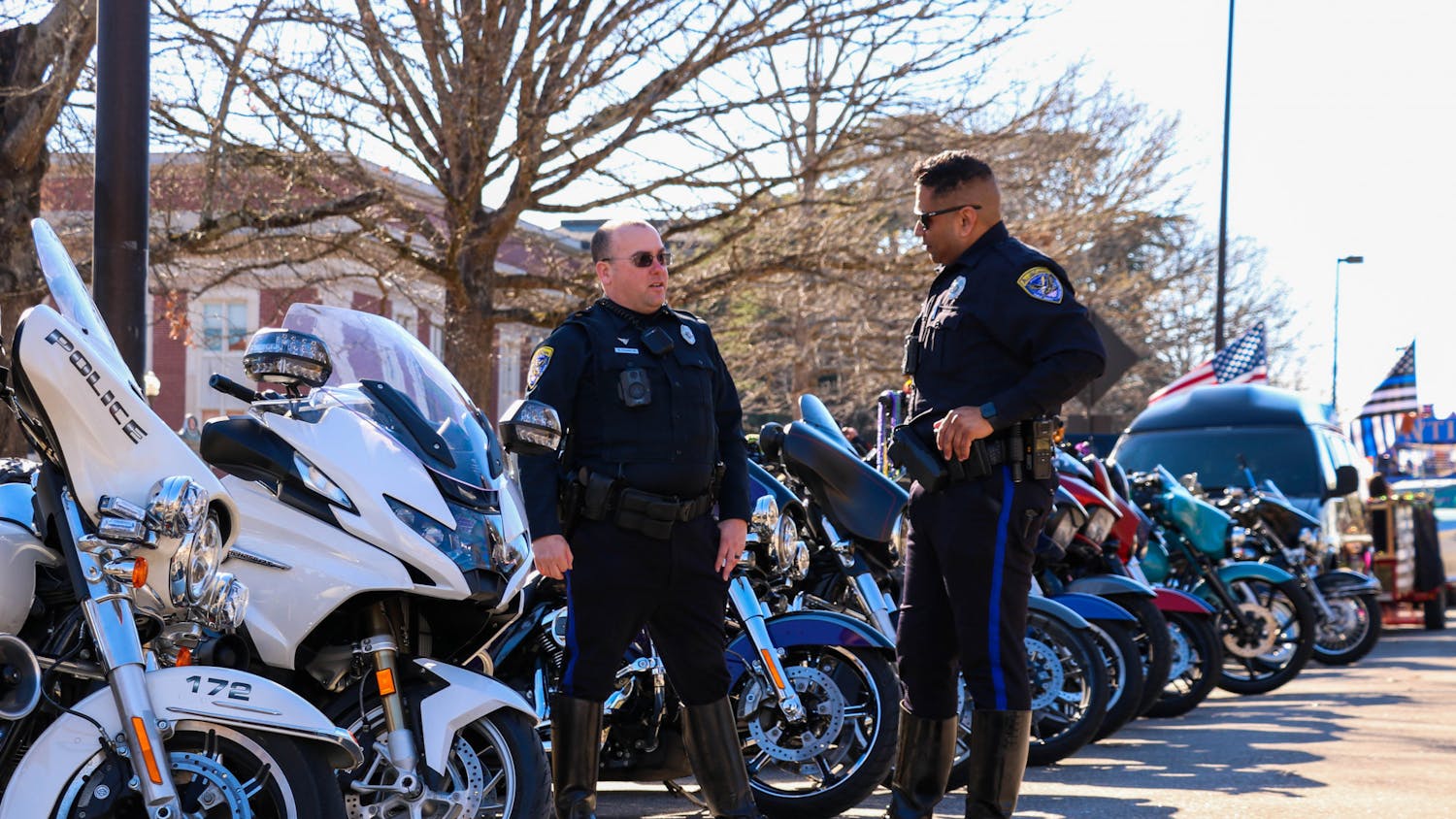Prospective law school students gathered in RBD for a panel discussion hosted by Debra Armstrong-Wright, coordinator of Auburn's pre-law programs, and ten Auburn students headed to law school in the fall to provide insight to the daunting process.
Armstrong-Wright opened the program by describing the law school application process as a “long, arduous process” but not impossible as each of the students sitting on the panel had completed it. Each student on the panel had decided on where they would be attending next year, with schools ranging from Vanderbilt to Northwestern to Cumberland.
The question and answer segment began with the topic of the most difficult part of the process for each specific student. Brittany King, senior in political sciences, described the most difficult part for her to be simply beginning the application.
“The most challenging part was starting, starting made it real,” King said. “A lot of the components such as starting the LSAT, working on my personal statement and starting all the applications.”
Some of the other students had comparable answers to each other, dealing with taking the LSAT, preparing for the LSAT and writing their personal statements. One of the challenging aspects of the personal statement for students Sydney McKinney, senior in chemical engineering, and Ben Seiss, senior in political science, was finding something interesting to write about.
“I’ll be honest, I’m a really generic white kid," Seiss said. "I don’t have any struggles in my life to write about, it was just difficult to come up with something.”
Seiss said the personal statement is something you should begin thinking about early on. He advised that you can write it at any time and not to wait.
McKinney's challenge with her personal statement came with opening up about her life and expressing her vulnerability. She shared a piece of advice with the students about what admissions looks for when they read each statement.
“They say when you write your personal statement you should let people step into your life, which is not something that I do well," McKinney said. "If you have that problem as well, talk to your friends about how they perceive you and how to communicate that, and also start early."
Another point emphasized throughout the panel was making sure to start the application process early and not waiting until the last minute. Almost every student confirmed they wish they wouldn’t have waited so long to submit personal statements, scores, etc.
Hannah-Kaye Fleming, senior in health services administration, was one of the students who wished she would have turned everything in sooner.
“Don’t wait until December to send out applications because you don’t want to spend your Christmas Break like that," Fleming said. "You also don’t want to be hearing back from schools in January and have your last semester of senior year to visit all of them."
Going along with that advice, Jordan Doggett, senior in political science, said she took the LSAT in her junior year of college instead of senior year like most students do, and everyone thought she was crazy. In the end, she said it made the rest of the application process easier later on since she wasn’t worried about her studying or her score.
Delving more into the LSAT, the students conveyed that different study methods work for each individual person. Some people require prep programs, but others like King thrive more doing the studying themselves.
“For me personally, a prep program would have never helped me only because I’m really bad with online things," King said. "If it’s not something where I’m in a classroom in front of someone and they’re working with me as far as LSAT, I would have wasted my money."
Another topic that came up consistently was how the students knew that the law school they decided on was the right one for them, especially for someone like Seiss who applied to eighteen schools. He said when it came down to it, the school he ended up choosing was partially because of the scholarship he was offered.
“It depends on what you want to do," Seiss said. "I didn’t know what I wanted to do, so I went with the money."
Abby Parker, senior in journalism, bounced off this idea by emphasizing that students need to be realistic when conducting the law school search.
“I think it’s important when applying to put a price tag on the school,” Parker said.
An important component in getting into a law school is to express interest. Several of the students said going on visits, meeting with admissions people and attending informational sessions can change whether someone gets admitted.
Overall, while the students described that the process was definitely a tedious one, it was never nearly as bad as some of the stories they had heard.
“You’ll have a gut feeling," Fleming said. "Things just kind of line up."
Do you like this story? The Plainsman doesn't accept money from tuition or student fees, and we don't charge a subscription fee. But you can donate to support The Plainsman.




